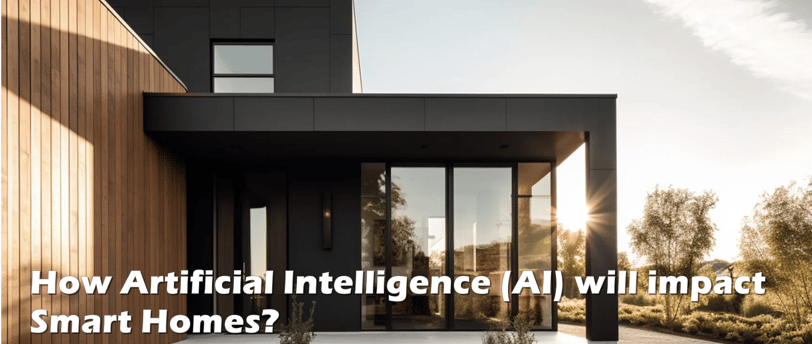How smart homes will be impacted via Artificial Intelligence (AI)?
AI is set to disrupt the way we live in our homes and making them more smart and efficient
12/10/20232 min read


Title: The Transformative Impact of Artificial Intelligence in Smart Homes: A Comprehensive Exploration
Introduction:
The integration of Artificial Intelligence (AI) into smart homes has revolutionized the way we interact with and experience our living spaces. As technology continues to advance, AI plays a pivotal role in enhancing the efficiency, convenience, and security of smart homes. In this comprehensive article, we delve into the multifaceted impact of AI in smart homes, exploring its implications for daily life, energy management, security, and overall home automation.
Enhanced Daily Living:
AI-driven personal assistants, such as Amazon's Alexa, Google Assistant, and Apple's Siri, have become ubiquitous in smart homes. These virtual assistants leverage natural language processing and machine learning algorithms to understand and respond to user commands. They facilitate seamless control over various connected devices, including smart lights, thermostats, and entertainment systems. Through voice commands, users can adjust settings, gather information, and even receive personalized recommendations, elevating the overall experience of daily living.
Energy Efficiency and Sustainability:
AI contributes significantly to energy management in smart homes, optimizing consumption patterns and promoting sustainability. Smart thermostats, powered by AI algorithms, learn user preferences and adjust heating and cooling systems accordingly. This not only enhances comfort but also results in energy savings. Additionally, AI-enabled energy monitoring systems analyze usage data to identify inefficiencies and suggest strategies for conservation. Through these innovations, smart homes are becoming key players in the global effort to reduce energy consumption and environmental impact.
Intelligent Home Security:
AI has ushered in a new era of home security, making residences safer and more resilient. Smart cameras and sensors equipped with AI algorithms can differentiate between ordinary events and potential threats, minimizing false alarms. Facial recognition technology allows for secure access control, while machine learning algorithms continuously adapt to changing conditions, improving accuracy over time. The integration of AI in security systems provides homeowners with real-time alerts, remote monitoring capabilities, and enhanced overall peace of mind.
Predictive Maintenance:
The application of AI in smart homes extends to predictive maintenance, ensuring the longevity of connected devices. By analyzing usage patterns and performance data, AI algorithms can predict when appliances or systems are likely to fail. This proactive approach allows homeowners to address issues before they escalate, reducing downtime and the need for costly repairs. Predictive maintenance not only enhances the reliability of smart home devices but also contributes to long-term cost savings.
Personalized Smart Environments:
AI's ability to analyze user behavior and preferences enables the creation of personalized smart environments. Smart homes can adapt to individual habits, adjusting lighting, temperature, and other settings automatically. This level of customization enhances user comfort and convenience, creating a living space that evolves based on the unique needs and preferences of its inhabitants.
Conclusion:
In conclusion, the integration of AI into smart homes has far-reaching implications, transforming the way we live, interact, and manage our living spaces. From enhancing daily living through virtual assistants to promoting energy efficiency and bolstering home security, AI is at the forefront of the smart home revolution. As technology continues to evolve, the impact of AI in smart homes will undoubtedly continue to shape the future of residential living, creating intelligent, responsive, and sustainable living environments for homeowners around the world. Embracing these advancements not only enhances our quality of life but also contributes to a more connected and efficient global community. Stay tuned as the intersection of AI and smart homes continues to redefine the concept of modern living.
